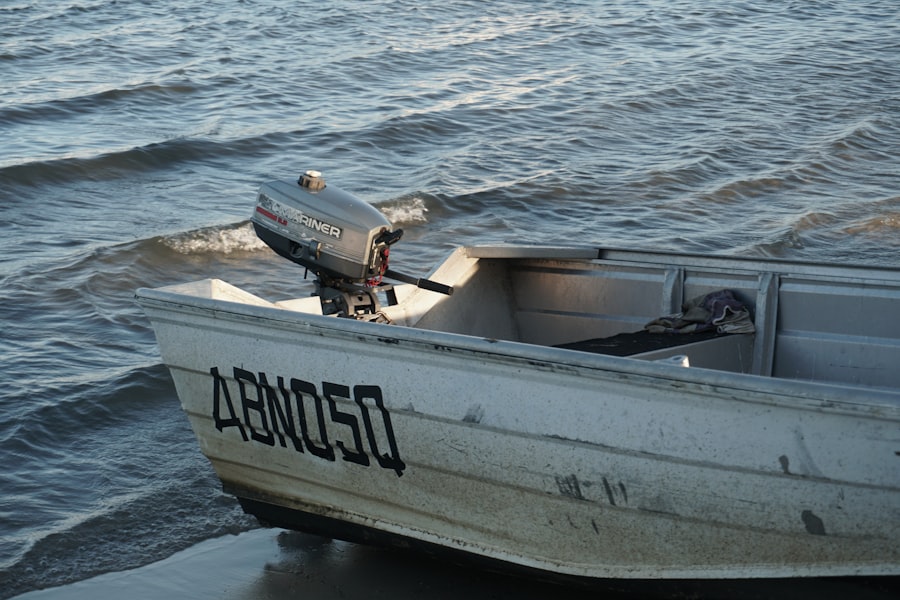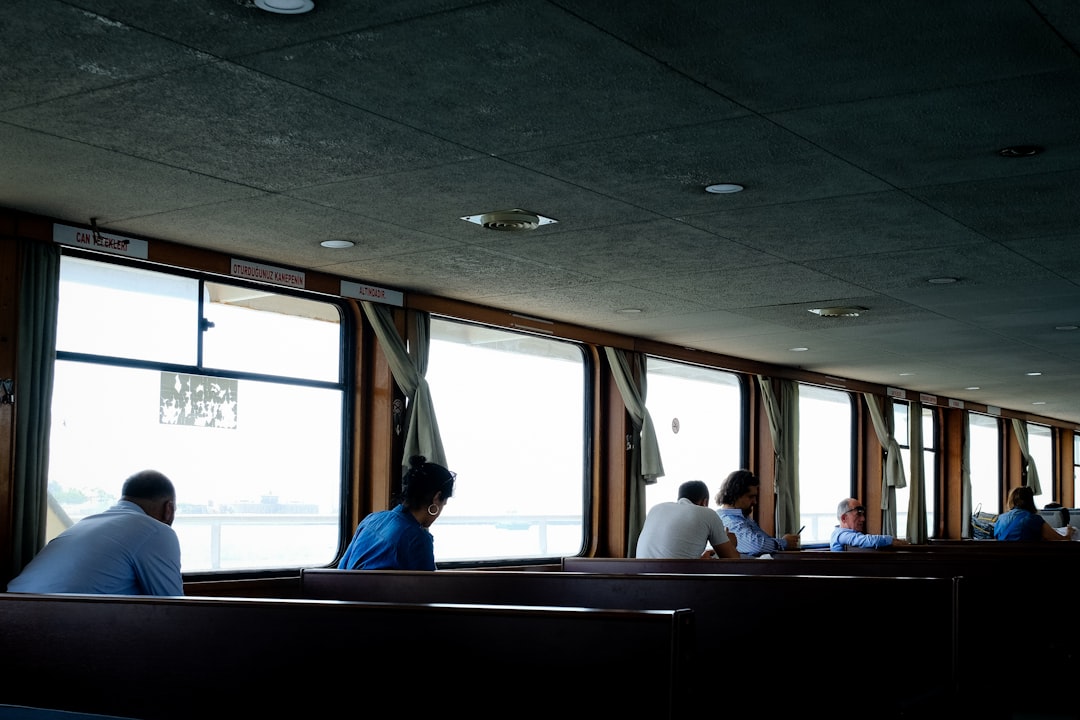Fisheries observers play a crucial role in the management and sustainability of marine resources. These trained professionals are deployed on fishing vessels to collect data on fish catches, bycatch, and the overall health of marine ecosystems. Their observations are vital for informing regulatory decisions, ensuring compliance with fishing quotas, and assessing the impact of fishing practices on marine biodiversity.
By providing accurate and unbiased data, fisheries observers contribute significantly to the development of effective conservation strategies and sustainable fishing practices. In addition to data collection, fisheries observers also serve as a bridge between the fishing industry and regulatory bodies. They help to foster transparency and accountability within the sector, ensuring that fishing operations adhere to established guidelines and regulations.
This oversight is essential for maintaining the balance between economic interests and environmental stewardship. As global demand for seafood continues to rise, the role of fisheries observers becomes increasingly important in safeguarding marine resources for future generations.
Key Takeaways
- Fisheries observers play a critical role in monitoring and ensuring sustainable fishing practices.
- Observers face significant dangers, including violence and intimidation, while performing their duties.
- Legal protections and international efforts are essential but often insufficient to guarantee observer safety.
- Increased risks have negatively impacted the recruitment and retention of fisheries observers.
- Technology and strategic measures are key to improving the safety and support of fisheries observers globally.
The Dangers of Fisheries Observation
Despite their critical contributions, fisheries observers often face significant dangers while performing their duties.
These factors can lead to accidents and injuries, making the job physically demanding and perilous.
Moreover, observers may encounter hostile situations when they confront illegal fishing practices or non-compliance with regulations. The dangers extend beyond physical risks; fisheries observers also face psychological challenges. The pressure of working in a high-stakes environment can lead to stress and anxiety, particularly when observers witness illegal activities or unethical practices.
The emotional toll of such experiences can be profound, impacting their mental well-being and overall job satisfaction. As a result, the dangers associated with fisheries observation encompass both physical and psychological dimensions, highlighting the need for comprehensive support systems for these professionals.
Increased Risks Faced by Fisheries Observers

In recent years, the risks faced by fisheries observers have escalated due to various factors. One significant contributor is the rise in illegal, unreported, and unregulated (IUU) fishing activities. As competition for dwindling fish stocks intensifies, some fishers resort to unlawful practices that not only threaten marine ecosystems but also put observers at risk.
When observers attempt to document these activities, they may encounter aggressive responses from crew members who feel threatened by the scrutiny. Additionally, the global context of fisheries observation has shifted, with geopolitical tensions influencing fishing practices in certain regions. In areas where territorial disputes exist or where fishing rights are contested, observers may find themselves in precarious situations.
The potential for violence or intimidation increases as stakeholders become more entrenched in their positions. This evolving landscape necessitates a reevaluation of safety protocols and support mechanisms for fisheries observers to ensure their protection while carrying out their essential duties.
Violence and Intimidation Against Fisheries Observers
| Year | Region | Number of Reported Incidents | Type of Violence | Percentage of Intimidation Cases | Outcome |
|---|---|---|---|---|---|
| 2021 | West Africa | 45 | Physical Assault, Threats | 60% | 5 Arrests, 10 Warnings |
| 2021 | South America | 30 | Verbal Threats, Harassment | 75% | 3 Arrests, 7 Warnings |
| 2022 | Asia-Pacific | 50 | Physical Assault, Equipment Damage | 55% | 8 Arrests, 12 Warnings |
| 2022 | Europe | 15 | Verbal Threats | 80% | 2 Arrests, 5 Warnings |
| 2023 | Global | 140 | Physical Assault, Intimidation, Harassment | 65% | 18 Arrests, 34 Warnings |
Violence and intimidation against fisheries observers have emerged as alarming trends within the industry. Reports indicate that observers have faced threats, harassment, and even physical assaults while on duty. Such incidents not only jeopardize the safety of these professionals but also undermine the integrity of data collection efforts.
When observers are intimidated or coerced into silence, the accuracy of information regarding fishing practices is compromised, ultimately hindering effective management strategies. The culture of fear that can permeate fishing vessels poses a significant barrier to the successful implementation of conservation measures. Observers may hesitate to report illegal activities or unsafe conditions due to concerns about retaliation from crew members or vessel owners.
This cycle of intimidation can perpetuate a lack of accountability within the industry, allowing harmful practices to continue unchecked. Addressing violence and intimidation against fisheries observers is essential for fostering a safe working environment and ensuring that marine resources are managed sustainably.
Challenges in Ensuring Fisheries Observer Safety
Ensuring the safety of fisheries observers presents numerous challenges that require concerted efforts from various stakeholders. One major obstacle is the lack of standardized safety protocols across different regions and jurisdictions. While some countries have implemented robust safety measures for observers, others may lack adequate regulations or enforcement mechanisms.
This inconsistency creates vulnerabilities for observers who may find themselves in dangerous situations without proper support or resources. Furthermore, the isolation inherent in many fishing operations complicates safety efforts. Observers often work in remote locations with limited access to communication or emergency services.
In cases of injury or distress, timely assistance may be difficult to obtain, exacerbating the risks associated with their work. To address these challenges, it is crucial for regulatory bodies, fishing companies, and observer programs to collaborate on developing comprehensive safety frameworks that prioritize the well-being of fisheries observers.
Legal Protections for Fisheries Observers

Legal protections for fisheries observers vary significantly across different jurisdictions, impacting their ability to perform their duties safely and effectively. In some regions, laws exist that specifically safeguard observers from harassment or retaliation while they carry out their responsibilities. These legal frameworks are essential for empowering observers to report illegal activities without fear of retribution.
However, in many areas, such protections are either insufficient or nonexistent, leaving observers vulnerable to intimidation and violence. Efforts to strengthen legal protections for fisheries observers are ongoing but require greater attention from policymakers and advocacy groups. By establishing clear legal rights for observers and ensuring that violations are met with appropriate consequences, stakeholders can create a safer working environment.
Additionally, raising awareness about the importance of these protections within the fishing industry can foster a culture of respect and accountability that benefits both observers and marine ecosystems.
The Impact of Increased Risks on Fisheries Observer Recruitment
The increasing risks associated with fisheries observation have significant implications for recruitment efforts within this field. As potential candidates become aware of the dangers involved—ranging from physical hazards to threats of violence—they may be deterred from pursuing careers as fisheries observers. This decline in interest can lead to a shortage of qualified professionals needed to monitor fishing activities effectively.
Moreover, high turnover rates among existing observers can exacerbate recruitment challenges. When individuals experience harassment or unsafe working conditions, they may choose to leave the profession altogether. This cycle not only affects the availability of skilled observers but also undermines the continuity of data collection efforts essential for sustainable fisheries management.
To attract and retain talent in this field, it is imperative to address safety concerns proactively and create an environment where observers feel valued and protected.
Strategies for Improving Fisheries Observer Safety
Improving fisheries observer safety requires a multifaceted approach that encompasses training, support systems, and collaboration among stakeholders. One effective strategy is to implement comprehensive training programs that equip observers with skills to navigate challenging situations safely. This training should include conflict resolution techniques, emergency response protocols, and awareness of legal rights related to their work.
Additionally, establishing robust support networks for fisheries observers can enhance their sense of security while on duty. Regular check-ins with supervisors or designated safety officers can provide observers with a channel for reporting concerns or seeking assistance when needed.
By prioritizing safety through training and support systems, stakeholders can create a more secure working environment for fisheries observers.
The Role of Technology in Protecting Fisheries Observers
Technology has the potential to play a transformative role in enhancing the safety of fisheries observers. Innovations such as satellite tracking systems can provide real-time monitoring of fishing vessels, allowing regulatory bodies to oversee operations more effectively. This increased oversight can deter illegal activities and reduce the likelihood of confrontations between observers and crew members.
Moreover, communication technologies can facilitate better connectivity between observers and support teams onshore. In emergencies or threatening situations, having access to reliable communication tools can be lifesaving for observers working in remote locations. Additionally, data collection technologies can streamline reporting processes, enabling observers to document incidents more efficiently while minimizing their exposure to potential risks.
By leveraging technology strategically, stakeholders can bolster observer safety while enhancing the overall effectiveness of fisheries management efforts.
International Efforts to Address Fisheries Observer Safety
International organizations have recognized the importance of addressing fisheries observer safety as part of broader efforts to promote sustainable fishing practices globally. Initiatives led by entities such as the Food and Agriculture Organization (FAO) aim to establish guidelines and best practices for observer programs worldwide. These efforts emphasize the need for standardized safety protocols and legal protections that transcend national boundaries.
Collaboration among countries is essential for creating a unified approach to observer safety. By sharing experiences and resources, nations can develop comprehensive frameworks that prioritize the well-being of fisheries observers while ensuring effective monitoring of fishing activities. International agreements that address observer safety can also enhance accountability within the industry by establishing clear expectations for vessel operators regarding their treatment of observers.
The Importance of Supporting Fisheries Observers
Supporting fisheries observers is not only a matter of ensuring their safety but also a critical component of sustainable fisheries management. By investing in observer programs and prioritizing their well-being, stakeholders contribute to the preservation of marine ecosystems and the long-term viability of fishing industries worldwide. Observers serve as guardians of our oceans, collecting vital data that informs conservation efforts and regulatory decisions.
Moreover, recognizing the challenges faced by fisheries observers fosters a culture of respect within the industry. When stakeholders acknowledge the risks associated with this profession and take proactive steps to address them, it sends a powerful message about the value placed on marine stewardship and ethical fishing practices. Ultimately, supporting fisheries observers is an investment in both human capital and environmental sustainability—one that will yield benefits for generations to come.
Fisheries observers play a crucial role in monitoring fish populations and ensuring sustainable fishing practices. Their work is essential for collecting data that informs management decisions and helps protect marine ecosystems. For more insights into the challenges and responsibilities faced by fisheries observers, you can read a related article on this topic at Hey Did You Know This.
WATCH THIS! The $10 Billion Lie: Why Your “Dolphin-Safe” Tuna Isn’t Safe
FAQs
What is the role of fisheries observers?
Fisheries observers are trained personnel who collect data on fishing activities, monitor compliance with fishing regulations, and ensure sustainable fishing practices. They work onboard fishing vessels to observe and record catch, bycatch, and fishing methods.
What happens to fisheries observers after their deployment?
After deployment, fisheries observers typically submit detailed reports based on their observations. These reports are used by regulatory agencies to assess fish stocks, enforce laws, and improve fisheries management. Observers may also undergo debriefing and data verification processes.
Are fisheries observers at risk during their assignments?
Yes, fisheries observers can face risks such as harsh weather conditions, long periods at sea, and potential conflicts with vessel crews. Safety protocols and training are provided to minimize these risks.
How are fisheries observers trained?
Observers receive specialized training that includes species identification, data collection techniques, safety procedures, and legal regulations. Training ensures they can accurately and safely perform their duties onboard fishing vessels.
What happens if a fisheries observer reports illegal activities?
If illegal activities are reported, the information is forwarded to relevant authorities for investigation and enforcement. Observers are protected by confidentiality policies to ensure their safety and impartiality.
Do fisheries observers receive compensation for their work?
Yes, fisheries observers are typically compensated for their time and work, which may include salary, per diem allowances, and coverage of travel expenses. Compensation varies depending on the employing organization and region.
What career opportunities exist for fisheries observers after their fieldwork?
Experienced fisheries observers may advance to roles in fisheries management, research, policy development, or environmental consulting. Their field experience provides valuable insights for various marine and conservation careers.
How do fisheries observers contribute to sustainable fishing?
By collecting accurate data and monitoring compliance, fisheries observers help ensure that fishing activities do not harm fish populations or marine ecosystems. Their work supports science-based management and conservation efforts.
